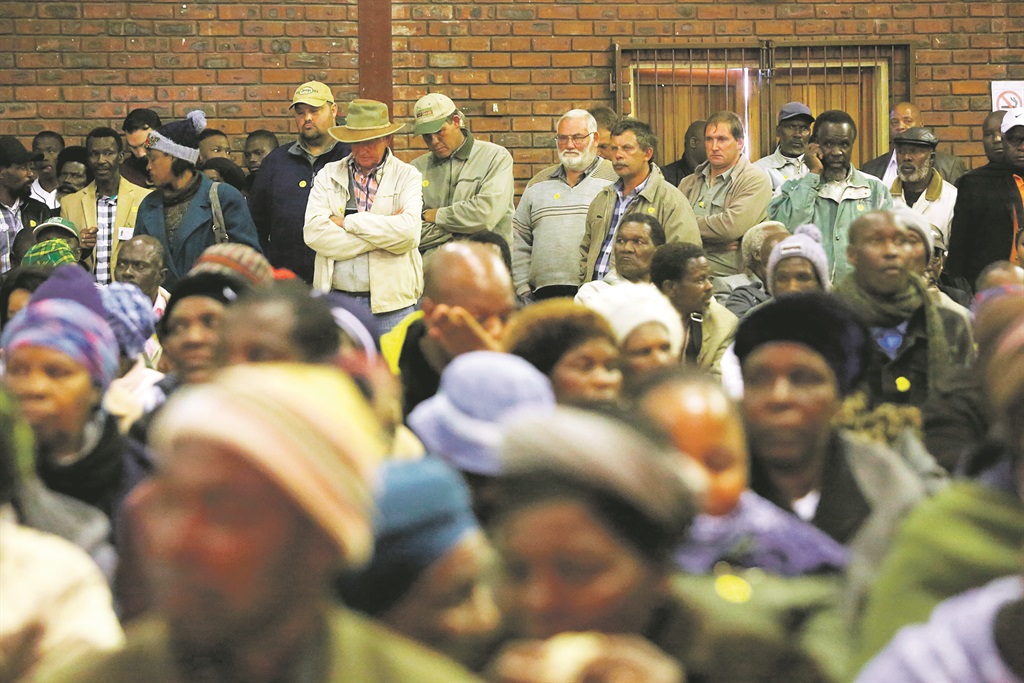
Last Saturday, the opportunity for public comment on the proposed amendment of section 25 of the Constitution, dealing with the question of land expropriation without compensation, came to a close.
The proposed amendment was an election rallying cry for some parties.
In our 2019 election manifesto, the newly formed Good party said: “A section 25 constitutional amendment is not required: government already expropriates land, and section 25 already allows for zero compensation where appropriate.”
The EFF championed the idea that the Constitution needed amending to enable land reform to happen.
This idea dominated our politics, without much thought for what the Constitution already provided.
So, we are now on the cusp of a constitutional amendment.
It is not clear whether the ANC jumped on the land expropriation without compensation bandwagon to divert attention from its own failures with regard to land reform (which have nothing to do with the Constitution) or out of fear of the EFF’s influence on its electoral support.
Now that we have seen the bill, it seems the ANC embraced the opportunity that the EFF so perfectly presented to divert attention from its own failures.
The bill is so unnecessary, it literally says so.
In both the bill’s preamble and its memorandum, it states that the amendment is intended to make “explicit that which is implicit”.
Land reform is a compelling and urgent issue.
It is specifically flagged by the Constitution, which requires the state to take steps to address the historic deprivation of land suffered by black South Africans.
In the debate about land expropriation, no one is arguing that this constitutional obligation to give effect to land reform is progressing appropriately.
There is consensus among all political parties that progress has been unacceptably slow and chaotic.
However, those who are blaming the Constitution for retarding progress are lying.
The Constitution does not require a “willing buyer and a willing seller”.
This language does not appear anywhere in the text.
The Constitution allows for the expropriation of property for public purpose or in the public interest.
It also requires that compensation for expropriation must be “just and equitable”, and then sets out the required circumstances.
The constitutional circumstances make it clear that in particular instances, zero compensation would be just and equitable.
To protect property rights, the Constitution requires that an expropriation may not be arbitrary.
Thus, property required for public purpose or public interest may already be expropriated, and compensation may already be nil if that is just and equitable, and not arbitrary.
Read: Expropriation without compensation will kill SA’s investment potential
If the state and those whose land is being expropriated cannot agree, then a court will decide what compensation – including nil – is just and equitable, and thus constitutional.
This is the current, unamended constitutional position on property rights. In fact, this position was affirmed by the Constitutional Court 18 years ago.
In a 2002 judgment, First National Bank vs The Minister of Finance, the court stated: “There are appropriate circumstances where it is permissible for legislation, in the broader public interest, to deprive persons of property without payment of compensation”.
Any suggestion that the concept of a just and equitable expropriation, for nil compensation, is only implicit was clarified in 2002.
What the government needed to do was to amend the 1975 Expropriation Act to give effect to that which was already constitutional.
Meanwhile, the debate – along with the hyperbole and hysteria whipped up by the likes of AfriForum and the DA – has been divisive.
The DA claims to have gathered 94 000 objections to the proposed amendment.
The party’s campaign was reckless and inflammatory, and disseminated blatantly false information.
The 94 000 signatures were obtained under false pretences.
The most egregious and false claim is this one: “If passed, this bill means the government will be free to take your home, business, land … in fact, anything that you ‘own’, without compensation.”
In fact, the current unamended constitutional provision provides for the expropriation of “property” – including, as I have indicated, for nil compensation under certain circumstances – when it would be just and equitable.
The proposed amendment narrows this considerably.
It introduces an explicit provision that expropriation without compensation is a “legitimate option for land reform”.
The proposed amendment reads: “A court may, where land and any improvements thereon are expropriated for the purposes of land reform, determine that the amount of compensation is nil.”
It also narrows the application of nil compensation to only those instances when the public purpose, or public interest, is for land reform. This is not “anything you own”.
It is unfortunate that land reform, so urgent and necessary, has been hijacked as a tool for political gain – by those claiming that it is being retarded by the Constitution, by those who have used the debate to hide their failings, and by those who claim to be constitutionalists but have whipped up unnecessary anxiety and fear based on lies.
Herron is secretary-general of the Good party
 | ||||||||||||||||||||||||||
Get in touchCity Press | ||||||||||||||||||||||||||
| ||||||||||||||||||||||||||
| Rise above the clutter | Choose your news | City Press in your inbox | ||||||||||||||||||||||||||
| City Press is an agenda-setting South African news brand that publishes across platforms. Its flagship print edition is distributed on a Sunday. |




 Publications
Publications
 Partners
Partners








